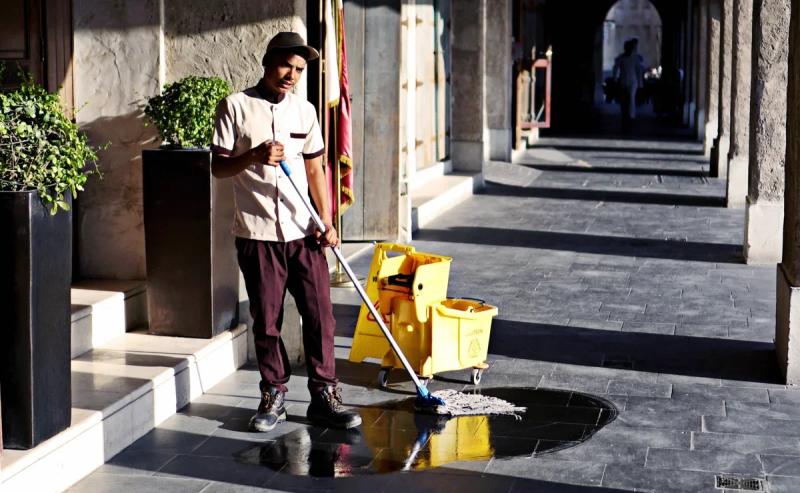
In many countries of the world, people spit on the streets, but only in some they are fined for it. Spitting will cost the most in Singapore. The cheapest is in the Yaroslavl region.
In Switzerland, spitting on the ground will soon become very expensive. In some cities, this “uncultured” phenomenon has become widespread, and in order to normalize the situation, local authorities are ready to impose fines.
Thus, several municipalities of the Swiss canton of Zurich have announced such measures. The amount of the fine for spitting on the street will be up to 200 francs (approximately 211 euros or 21,200 rubles). A number of cities have already introduced this practice: in the city of Uster, spitting costs 80 francs (about 8,500 rubles), and in the city of Listal in the canton of Basel-Land, you will have to pay 100 francs (about 10,600 rubles) for this.
In some Swiss cities, such as Dubendorf or Glattfelden, spitting on the ground is an administrative offense, but entails a smaller fine: from 40 to 50 francs (from 4,250 rubles to 5,300 rubles).
The municipal authorities promise to catch spitting “red-handed”, including tourists. Police and municipal service officers will be on duty at popular tourist spots on weekends.
SPITTING ON THE STREETS IS PROHIBITED IN GERMANY, SINGAPORE AND KAZAKHSTAN
Spitting is also prohibited in Germany: in many cities, spitting on the ground is an administrative offense for which a fine can be imposed. The amounts are less than in Switzerland. For example, in Cologne, spitting in public places costs from 30 to 60 euros (from 3,000 rubles to 6,000 rubles), But in Germany it is extremely rare to be fined for such a violation.
In Singapore, the situation is completely different. A fine of up to 1,000 Singapore dollars (approximately 69,000 rubles) is imposed for spitting in a public place, and the likelihood that the offender will incur this administrative penalty is extremely high.
By the way, the ban on chewing gum in Singapore, which has been in force since 1992, is connected with spitting. The reason: a lot of chewing gum ends up on the street or on the walls. The cost of removing it turned out to be too high for the government, so chewing gum was simply banned.
You cannot import any gum into the country, and you cannot spit it out on the ground or attach it anywhere. By the way, the culmination of this whole story was an event in the Singapore subway: because of the gum stuck on, the train door could not close at one of the central stations, and the train was delayed for 15 minutes, which caused a transport collapse in the city.
Spitting on the streets is also prohibited in Kazakhstan. For spitting on the streets, violators are prosecuted under Article 434-2 of the Administrative Code of the Republic of Kazakhstan “Pollution of public areas”. The article provides for a fine in the amount of five monthly calculation indices (MCI) – 17,250 tenge (about 3,500 rubles). In case of repeated violation during the year – 10 MCI, or 32,500 tenge (about 6,500 rubles).
YAROSLAVL REGION IN THE GLOBAL TREND
This year, a region appeared in Russia where spitting is legally prohibited. Such a fine appeared in the Yaroslavl region in June. So, for spitting in a public place, a fine of 1.5 thousand rubles is provided, in case of repeated violation – 3 thousand rubles.
The punishment for spitting was prescribed in the regional law “On administrative Offenses” in the paragraph where previously it was about the administration of natural necessities in public places. However, the fine for need is more than 5 thousand rubles. According to the Yaroslavl authorities, administrative responsibility for spitting will help “shape culture.”
The practice of law enforcement in relation to fines for spitting in the Yaroslavl region is still unknown. Perhaps the regional authorities will tell about it by the end of 2023, and other regions of Russia will implement such a ban.
Elena Myagkova
